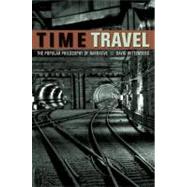Time Travel The Popular Philosophy of Narrative
, by Wittenberg, David- ISBN: 9780823249978 | 0823249972
- Cover: Paperback
- Copyright: 12/3/2012
This book argues that time travel fiction is a narrative "laboratory," a setting for thought experiments in which essential theoretical questions about storytelling--and by extension, about the philosophy of temporality, history, and subjectivity--are represented in the form of literal devices and plots. Drawing on physics, philosophy, narrative theory, psychoanalysis, and film theory, the book links innovations in time travel fiction to specific shifts in the popularization of science, from evolutionary biology in the late 1800s, through relativity and quantum physics in the mid-twentieth century, to more recent "multiverse" cosmologies. Wittenberg shows how increasing awareness of new scientific models leads to surprising innovations in the literary "time machine," which evolves from a "vehicle" used chiefly for sociopolitical commentary into a psychological and narratological device capable of exploring with great sophistication the temporal structure and significance of subjects, viewpoints, and historical events. The book covers work by well-known time travel writers such as H. G. Wells, Edward Bellamy, Robert Heinlein, Samuel Delany, and Harlan Ellison, as well as pulp fiction writers of the 1920s through the 1940s, popular and avant-garde postwar science fiction, television shows such as The Twilight Zone and Star Trek, and current cinema. Literature, film and TV are read alongside theoretical work ranging from Einstein, Schrdinger, and Stephen Hawking to Grard Genette, David Lewis, and Gilles Deleuze. Wittenberg argues that even the most mainstream audiences of popular time travel fiction and cinema are vigorously engaged with many of the same questions about temporality, identity, and history that concern literary theorists, media and film scholars, and philosophers.







